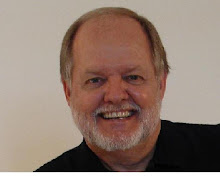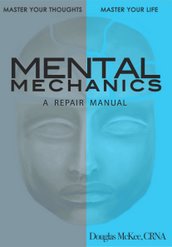I recently finished writing my second book. This one is about Wisdom. Not the kind of wisdom that seeks to answer mankind’s biggest questions, but the kind of wisdom that helps each of us make the best use of our time and energy on a daily basis.
Wisdom, I discovered, is a step by step process for making the best choices based on the information we have at hand.
Wisdom is the antidote for the vast majority of the negative emotions that cause us most of our problems. Wisdom is the cure for stress, anxiety, depression, and anger. Why? Because when we are thinking wisely we are focused on the facts of a situation and not on the emotions of our story about the situation. Facts don’t have feelings and emotions rarely have facts.
Wisdom is more important now than ever. If we look at every aspect of our culture, we must admit that things are really a mess.
Wisdom can fix all those things, but where is wisdom needed the most? It is needed the most at the level of the individual because that is where we live and raise our children. If the next generation of leaders turn out to be no wiser than we have been, to put it bluntly, we are all screwed.
It is obvious that the people we have asked to lead us are dedicated to making selfish, short-sighted, and unwise decisions. It is obvious that our trust has been misplaced.
We must return to the ethos that made our culture the envy of the world; the ethos of self-reliance. Self reliance is the highest form of trust. We can trust ourselves to make the kinds of choices that evolve our own lives rather than depending on our environment to take care of us.
Wisdom is the key to self reliance because it requires us to focus on the things that are really important.
What difference does it make what is on the TV if our children are not being educated?
What difference does my address make if my children are not mentally and physically healthy?
What difference does the label on my shirt make if I cannot find a moments peace from my worries?
What difference does our income make if our children are destined to live in a third world country?
We cannot rely on anyone other than ourselves to make sure the distress in our lives is minimal, that our relationships are loving and respectful, and that our children are healthy and well educated.
Practicing wisdom will do that. Think about the impact that making the best decisions would have on your life.
1. More Time
2. Less Distress
3. More Energy
4. Better Relationships
That’s a real Christmas gift, to yourself and to your family.
Saturday, December 18, 2010
Thursday, December 9, 2010
How to Actually Manage Your Stress During the Holidays
Once again it is the Holiday season, and the experts tell us additional stress is on its way just like Santa Claus. Had the experts read the original work on stress they would have realized the key to managing stress was included in that paper.
The word “Stress” actually refers only to the “work” the body must do. If we don’t like the work, it is referred to as “distress” and our brain makes chemicals that make us feel angry, anxious, or depressed. So it is actually distress that causes us so many problems.
At least 90% of our distress does not come from the actual work we must do. It comes from the negative emotional story we tell ourselves about the work. For example, if we walk into a church, there is the work our body must do in walking. The work is the same if we are walking into a wedding or a funeral. It is our emotional state that changes. It is negative emotions that cause our distress.
The best way to manage stress to avoid creating the mental kind of stress that makes us miserable, and we can do that by simply not telling ourselves so many negative stories.
During the Holidays there are three things that cause additional distress; relationships, finances, and time demands. Relationships: Too much or too little togetherness can cause pressure. Finances: Added expenses in an already tight budget can cause problems now and in the future. Physical Demands: We are all pretty busy and the extra Holiday demands can overload us.
It is obvious we all would like to enjoy our Holidays, and it is much more likely if we don’t spend so much time making our self miserable with our stories. So here are four techniques to help you stop the story telling and get back in control so you can get your work done.
Where’s the Danger?
Almost all our distress is simply the result of our stories. If you want to prove this for yourself, when you are feeling distressed just look around you. If you can point to something that is actually dangerous, run for safety. If there is no danger, the distress is coming from your story.
Look Before You Leap
Negative emotional habits are a lot like jumping off a cliff. Once you have jumped, you are committed to the fall. Once you have lost control, the damage from what you have done, said, or thought is done. Stay on neutral ground.
Stop, Drop, and Roll
When you get upset it is like finding yourself on fire. You are suddenly out of control. “Stop, Drop, and Roll,” like the time proven fire safety technique, can be used to put your conscious self back in control of your thoughts. STOP means just that. Stop thinking about whatever it is that is causing you distress. DROP would mean drop back or mentally back up to a previous thinking position. And then ROLL out your new decision in a different direction like a red carpet.
Change the Channel
Your negative stories are like watching a TV program you know will make you feel miserable. The major difference is that your story is being generated in your own brain. Since it is your story, you can change the channel on your imaginary negative program and think about something else, or just turn off the program.
Happy Less Distressing Holidays Douglas McKee
The word “Stress” actually refers only to the “work” the body must do. If we don’t like the work, it is referred to as “distress” and our brain makes chemicals that make us feel angry, anxious, or depressed. So it is actually distress that causes us so many problems.
At least 90% of our distress does not come from the actual work we must do. It comes from the negative emotional story we tell ourselves about the work. For example, if we walk into a church, there is the work our body must do in walking. The work is the same if we are walking into a wedding or a funeral. It is our emotional state that changes. It is negative emotions that cause our distress.
The best way to manage stress to avoid creating the mental kind of stress that makes us miserable, and we can do that by simply not telling ourselves so many negative stories.
During the Holidays there are three things that cause additional distress; relationships, finances, and time demands. Relationships: Too much or too little togetherness can cause pressure. Finances: Added expenses in an already tight budget can cause problems now and in the future. Physical Demands: We are all pretty busy and the extra Holiday demands can overload us.
It is obvious we all would like to enjoy our Holidays, and it is much more likely if we don’t spend so much time making our self miserable with our stories. So here are four techniques to help you stop the story telling and get back in control so you can get your work done.
Where’s the Danger?
Almost all our distress is simply the result of our stories. If you want to prove this for yourself, when you are feeling distressed just look around you. If you can point to something that is actually dangerous, run for safety. If there is no danger, the distress is coming from your story.
Look Before You Leap
Negative emotional habits are a lot like jumping off a cliff. Once you have jumped, you are committed to the fall. Once you have lost control, the damage from what you have done, said, or thought is done. Stay on neutral ground.
Stop, Drop, and Roll
When you get upset it is like finding yourself on fire. You are suddenly out of control. “Stop, Drop, and Roll,” like the time proven fire safety technique, can be used to put your conscious self back in control of your thoughts. STOP means just that. Stop thinking about whatever it is that is causing you distress. DROP would mean drop back or mentally back up to a previous thinking position. And then ROLL out your new decision in a different direction like a red carpet.
Change the Channel
Your negative stories are like watching a TV program you know will make you feel miserable. The major difference is that your story is being generated in your own brain. Since it is your story, you can change the channel on your imaginary negative program and think about something else, or just turn off the program.
Happy Less Distressing Holidays Douglas McKee
Subscribe to:
Comments (Atom)





